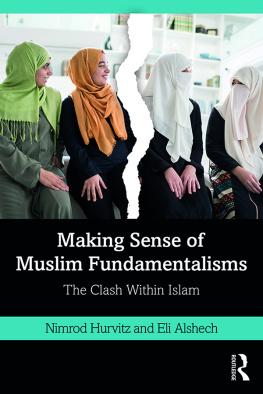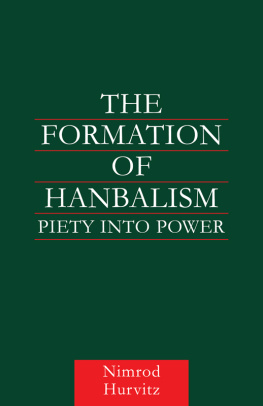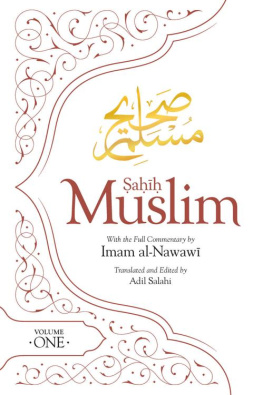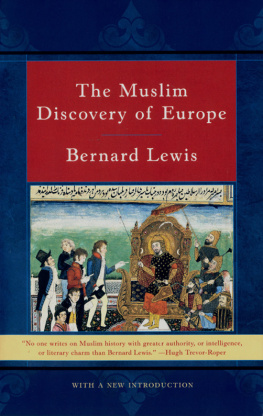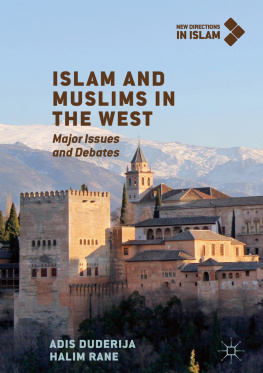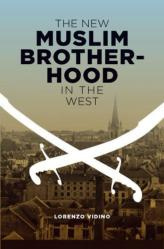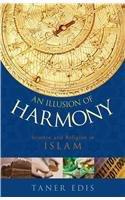Making Sense of Muslim Fundamentalisms
Studying Muslim fundamentalisms, this book compares key movements, examining their commonalities, differences, and intricate relations, as well as their achievements and failures. Muslim fundamentalisms have the sympathy of approximately half of the Muslim population in the world. Yet, they are divided among themselves and are in a constant state of controversy.
The research dwells on the leading fundamentalist movements, such as the Muslim Brothers, Tablighi-Jamaat, al-Qaeda, and ISIS, and illustrates how differently they think about the West and its culture, democracy, and womens presence in the public sphere. By identifying these trends, and studying them comparatively, the book enables the interested reader to make sense of the plethora of fundamentalist movements, which are otherwise lumped together by the media and are barely discernible for the reader. Whereas most studies of Muslim fundamentalism focus on organizational or militant actions that the movements perform, this study concentrates on their efforts to Islamize society through everyday life in a peaceful manner.
Identifying the different strands of Muslim fundamentalisms, the book will be a key resource to a wide range of readers including researchers and students interested in politics, religious, Islamic and Middle Eastern Studies.
Nimrod Hurvitz teaches at the Department of Middle East Studies at Ben Gurion University of the Negev. His areas of interest are medieval and modern religio-political movements. His publications have appeared in The American Historical Review, and in the Islamic Legal Studies Program at Harvard Law School.
Eli Alshech is a visiting scholar at the Hebrew University and a government consultant. His research focuses on Islamic fundamentalism, Salafi-Jihadism, Lone wolf Terrorism, and Cyber Terrorism. His recent publications pertain to the ideological rift within the Salafi-Jihadi camp, and to the way Jihadists build their authority and legitimacy.
First published 2020
by Routledge
2 Park Square, Milton Park, Abingdon, Oxon OX14 4RN
and by Routledge
52 Vanderbilt Avenue, New York, NY 10017
Routledge is an imprint of the Taylor & Francis Group, an informa business
2020 Nimrod Hurvitz and Eli Alshech
The right of Nimrod Hurvitz and Eli Alshech to be identified as authors of this work has been asserted by them in accordance with sections 77 and 78 of the Copyright, Designs and Patents Act 1988.
All rights reserved. No part of this book may be reprinted or reproduced or utilised in any form or by any electronic, mechanical, or other means, now known or hereafter invented, including photocopying and recording, or in any information storage or retrieval system, without permission in writing from the publishers.
Trademark notice: Product or corporate names may be trademarks or registered trademarks, and are used only for identification and explanation without intent to infringe.
British Library Cataloguing-in-Publication Data
A catalogue record for this book is available from the British Library
Library of Congress Cataloging-in-Publication Data
Names: Hurvitz, Nimrod, 1958- author. | Alshech, Eli, 1966- author.
Title: Making sense of Muslim fundamentalisms : the clash within Islam / Nimrod Hurvitz and Eli Alshech.
Description: Abingdon, Oxon ; New York, NY : Routledge, 2020. | Includes bibliographical references and index.
Identifiers: LCCN 2020000202 (print) | LCCN 2020000203 (ebook) | ISBN 9780367856458 (hbk) | ISBN 9780367856465 (pbk) | ISBN 9781003014133 (ebk) | ISBN 9781000065992 (adobe pdf) | ISBN 9781000066036 (epub) | ISBN 9781000066012 (mobi)
Subjects: LCSH: Islamic sects--Comparative studies. | Islam--Comparative studies. | Islamic fundamentalism--21st century.
Classification: LCC BP191 .H868 2020 (print) | LCC BP191 (ebook) | DDC 297.09/05--dc23
LC record available at https://lccn.loc.gov/2020000202
LC ebook record available at https://lccn.loc.gov/2020000203
ISBN: 978-0-367-85645-8 (hbk)
ISBN: 978-0-367-85646-5 (pbk)
ISBN: 978-1-003-01413-3 (ebk)
The idea for this study came into being when we participated in a workshop entitled Religious Knowledge, Authority and Charisma, organized by Daphna Ephrat and Meir Hatina at the Hebrew University. We would like to thank them and our colleagues who participated in the workshop for providing us with the intellectual ambiance that enabled us to hatch this idea.
We would like to thank friends and colleagues who read some parts of the manuscript and others with whom we discussed its ideas: Muhammad al-Atawneh, Michael Gluzman, Dina Hurvitz, Dror Wahrman, Dror Zeevi, Ziony Zevit.
We are grateful to our editor Sara Tropper for improving the style and clarity of this study, and Andrew Deutsch for his copyediting. Obviously all the mistakes remain our own.
Our working places Nimrod Hurvitz at Ben Gurion University of the Negev and Eli Alshech at Middle East Media Research Institute (MEMRI) and Hebrew University served as conducive environments for discussing half-baked ideas. We would like to thank our colleagues for the conversations that helped us develop many of the ideas that appear in this book.
We would like to thank our families, Dina, Yaara, and Hagar Hurvitz, and Zehava, Yotan, Yahav and Lia Alshech, for supporting us.
The presence of fundamentalisms
In Western media and politics, the image of militant Muslim fundamentalism often stands for all Muslim fundamentalists, and, by further extension, for all of Islam. Both of these leaps, whether motivated by deep fear, genuine ignorance or cynical manipulation, are factually mistaken and morally wrong.
This book counters such warped depictions of Islam by injecting new precision and stronger grounding into the understanding of Muslim fundamentalisms, be they moderates or militants. Our new comparative framework, which compares Muslim fundamentalist movements to each other, produces a more balanced representation of Islam, one that illuminates the internal variance and dynamics among contemporary Muslim movements and the different ways that they navigate the challenges of modernity. Such a perspective also broadens the scope of themes associated with fundamentalism, and places alongside politics and violence such themes as culture wars and gender values. In all of these ways, we believe that Making Sense of Muslim Fundamentalisms advances our understanding beyond where current scholarship and public debate have taken it today.
Why Muslim fundamentalisms: Thesis and method
The notion of Muslim fundamentalism is understood and used in different ways, and as a consequence generates intense debate. This book converges with the third approach, and offers a comparative study of Muslim fundamentalists.
However, the comparative approach presented in this study differs from most of the comparisons of fundamentalisms in that it compares Muslim fundamentalist movements to each other rather than to Christian and Jewish fundamentalisms. As will be elaborated, by shifting our attention from external comparisons, that is, between Islam and other religions such as Christianity and Judaism, to an internal comparison of Muslim fundamentalist movements, we will be able to raise a new set of questions and offer novel insights about Muslim fundamentalisms.
Many of the scholars who reject the term Muslim fundamentalism use the term political Islam to describe the resurgence of Islam. Although political Islam is a useful category, we chose not to use it because it narrows the scope of the phenomenon of Islamic resurgence to politics.

